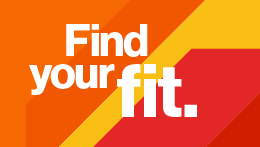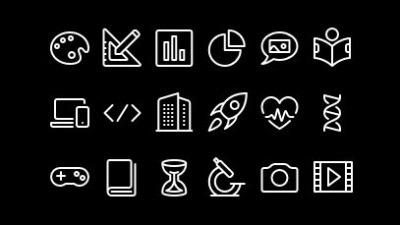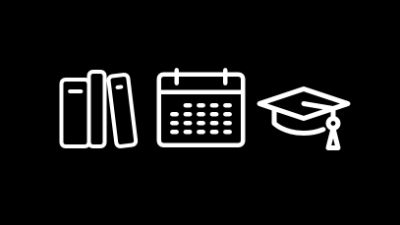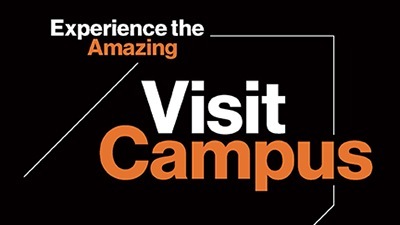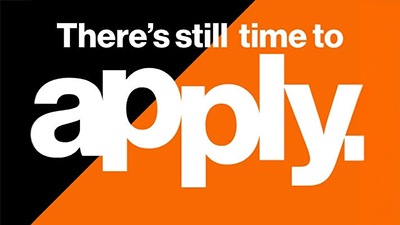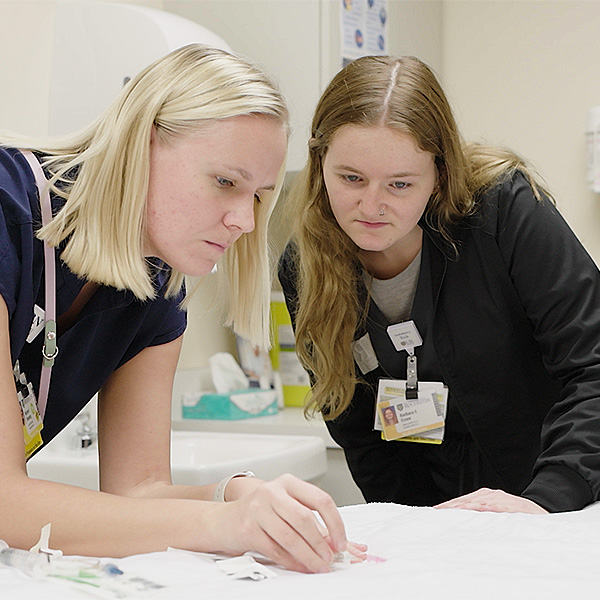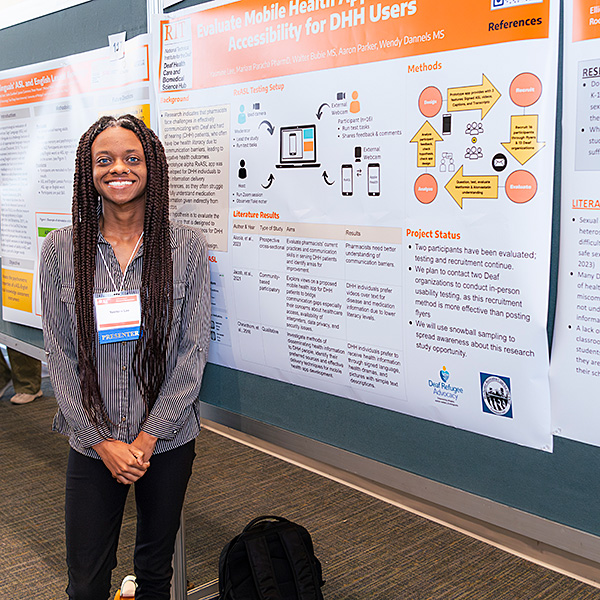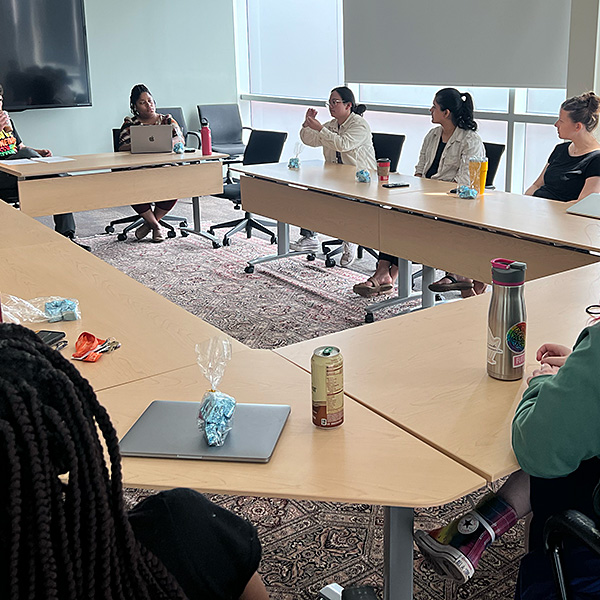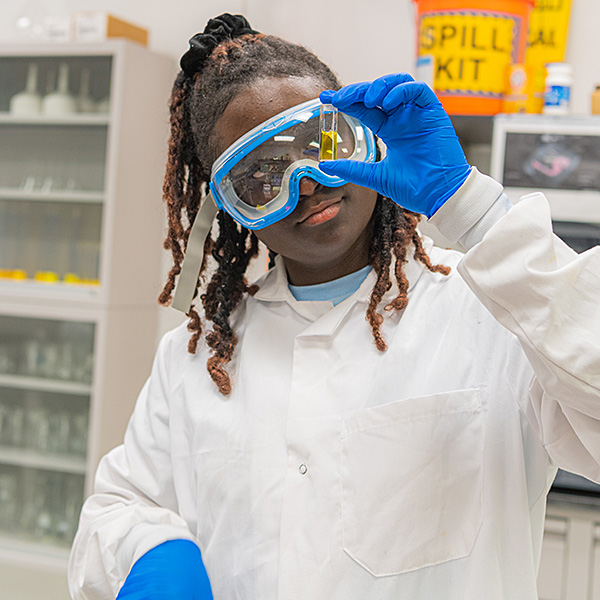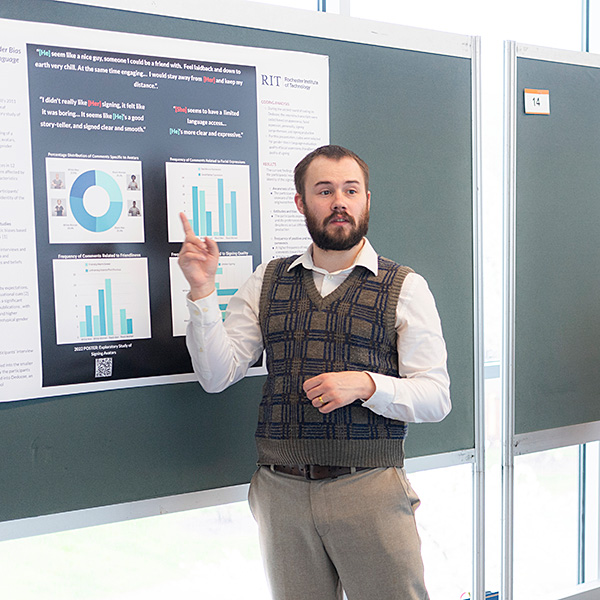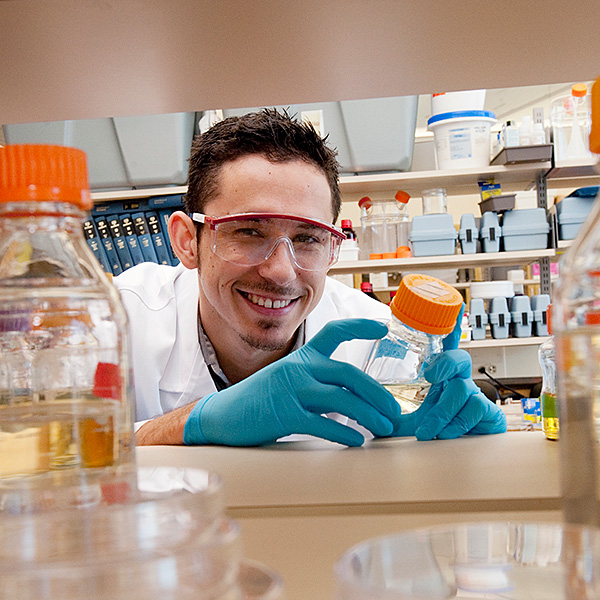Deaf Health Care and
Biomedical Science Hub
- RIT/
- National Technical Institute for the Deaf/
- Deaf Health Care and Biomedical Science Hub
Overview
The Deaf Hub was established in 2022 to increase the number of culturally- and language-concordant individuals in healthcare and biomedical science careers. The Deaf Hub supports pathways to healthcare careers, creates a network for scientists, and conducts research on alleviating healthcare systemic barriers for patients, trainees, and professionals.
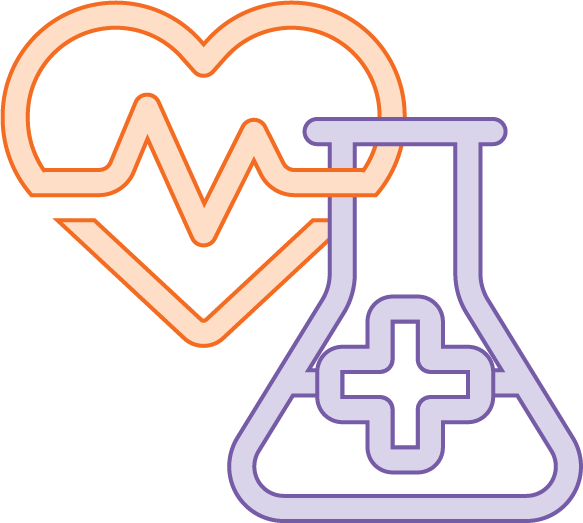
How It All Began
In 2012, the Task Force on Health Care Careers for the Deaf and Hard-of-Hearing Community, a partnership between RIT/NTID, Gallaudet University, University of Rochester Medical Center, and Rochester Regional Health wrote a vision in the final report.
This partnership, known as the Deaf Hub, began with an emphasis on biomedical science careers with programming that was funded by NIH’s National Institute for General Medical Sciences. The Deaf Hub expanded to provide training, advocacy, and mentorship opportunities in clinical and practicing careers in health care.
Goals and Objectives
The Deaf Hub mentors students and professionals, promotes research and healthcare professional networks, and works to improve healthcare teams – all as part of a long-term goal to increase the number of culturally- and language-concordant healthcare providers and biomedical science researchers.
The Deaf Hub achieves its goals by:
- Mentoring students interested in a career in health care or biomedical science.
- Supporting biomedical and healthcare conferences and networks for deaf and hard-of-hearing trainees and professionals.
- Providing professional development and training opportunities for healthcare professionals, health systems employers, and higher education administrators.
Deaf Health Laboratory Director
U-RISE Program Director
Co-director of MSSP
Director of Healthcare Mentoring
Co-director of MSSP
Director of Research and Education on Accessible Communication in Health Care Laboratory
Deaf Hub Affiliate
Deaf Hub Affiliate
Biomedical Science Training Programs Interpreter
Rochester Bridges to the Doctorate (Bridges) (Inactive)
Educational Training Programs
Deaf Hub Exploring Perspectives series
Deaf Hub Exploring Perspectives (DHEP) series invites various deaf and hard-of-hearing scientists and healthcare professionals nationwide to share their experiences in navigating their challenges and successes on their academic journey. All presentations are recorded and available online. Recordings from previous years can be found on our YouTube @NTIDDeafHub.
These presentations are intended for a broad audience, including students in grades 8-12. If you are a middle school or high school student or educator, please fill out this form to connect with us.
Fall 2025
Andrew Donald, DDS
General Dentistry
“Embracing Deaf Identity, Leading in Dentistry, Owning a Practice”
Wednesday, September 17, 2025 | 3 - 4 p.m.
View recording
Anna Kasper, BS, PhD Student
Neuroscience
“Chasing Questions, Finding Belonging”
Monday, October 20, 2025 | 1 - 2 p.m.
View recording
Brennan Terhune-Cotter, PhD
Language and Communication Disorders
"A Deaf Neuroscientist's Journey Into the Brain"
Friday, November 14, 2025 | 12 - 1 p.m.
View recording
Spring 2026
Marita Løkken, PhD Candidate
Nursing
"From A to BSN to PhD: My personal pathway to knowledge"
Friday, February 27, 2026 | 11 a.m. - 12 p.m.
Register Now
Brienna "Bri" Herold, MS
Data Science
"From Pipettes to Pipelines to Piping Bags: My Nonlinear Path Through Data"
Tuesday, March 3, 2026 | 12 - 1 p.m.
Register Now
Alexander Wilkins, PhD
Clinical Psychology
TBA
Wednesday, April 8, 2026 | 1 - 2 p.m.
Register Now
Deaf Hub Vital Signs series
Deaf Hub Vital Signs series is an annual event that showcases a healthcare professional and their experience in navigating the healthcare industry. This two-day event takes place at Rochester School for the Deaf and Rochester Institute of Technology.
Tiffany Bridgett, PhD will present on Friday, March 20, “Transforming Barriers into Purpose: A Deaf Psychologist’s Journey of Change, Care, and Advocacy.” This event will take place at Dyer Arts Center from 4 to 6 p.m., with the presentation at 4pm followed by a reception. Deaf Hub Vital Signs is an annual event to showcase a healthcare professional and their experience in navigating the healthcare industry as a deaf or hard-of-hearing provider who is a BIPOC and/or a woman.
Join us for a reception after the talk - a table is waiting for you! Sign up by Friday, February 27!
Dr. Tiffany Bridgett is a Deaf licensed clinical psychologist in Massachusetts and founder of Lifestyle & Access, PLLC, providing accessible, culturally responsive mental health care for Deaf individuals and hearing clients impacted by complex trauma, serious mental illness, and systemic barriers to care. With over a decade of experience across hospital, school, and community settings, she uses trauma-informed, relational, and collaborative approaches. As a neurodivergent psychologist, Dr. Bridgett brings empathy and authenticity to her work and also trains mental health interpreters nationwide in trauma-informed practice, ethics, and cross-cultural collaboration.
Student Empowerment Workshop
Student Empowerment Workshop is an annual event to invite various presenters and host interactive activities with students. The workshop aims to support students in improving their academic resources and navigating academic success.
The BRIGHT IDEA program hosts a Student Empowerment Workshop, an interactive ASL-led mystery dinner roleplaying experience on Friday, March 27 from 5 to 8 p.m. The event will require students to work with healthcare professionals in solving the strange case of Dr. Brightidea.
The Student Empowerment Workshop is an annual event to invite various presenters and host interactive activities with students. It aims to support students in improving their knowledge of academic resources, and navigating healthcare and biomedical professional fields.
Spots are limited to participate in the mystery dinner - RSVP by Friday, February 27!
Affiliate Programs
Middle School/High School Students: NTID Outreach Programs
The RIT/NTID Outreach team works with the NTID Regional STEM Center and the Deaf Hub to coordinate middle and high school STEM programs. Our outreach team has years of experience with developing interactive camps and programs rooted in diversity, while connecting with students, parents, and educators. Learn more about NTID Outreach and our programs on the NTID Outreach webpage.
If you are a student entering 10th, 11th, or 12th grade and interested in exploring health care fields, be sure to check out the Health Care Careers Exploration Program webpage.
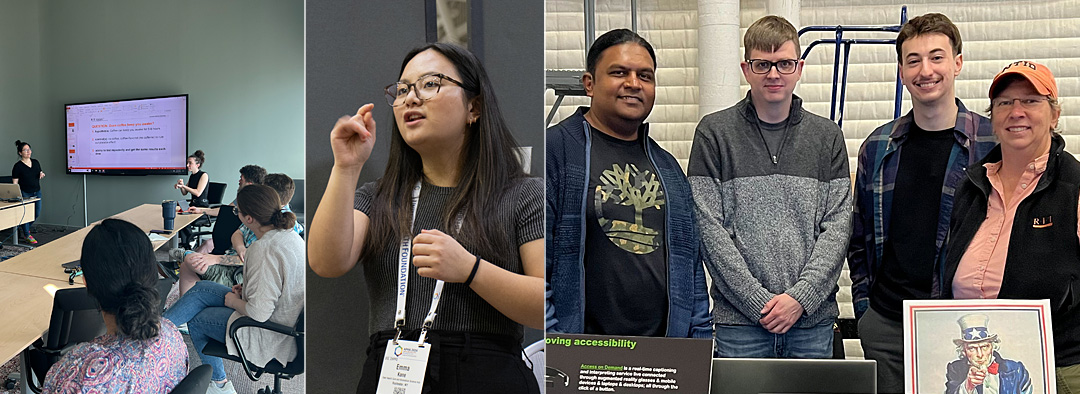
The Deaf Hub uses research to better understand deaf and hard-of-hearing individuals’ experiences in health care, as well as develop solutions to the barriers deaf and hard-of-hearing patients, trainees, and professionals often face in healthcare settings.
Deaf Health Laboratory (DHL)
Tiffany Panko, MD, MBA, Lab Director
The Deaf Health Laboratory promotes health justice through research and initiatives in health priority areas including but not limited to healthcare systemic barriers, health literacy, family planning, and preventive health.
Research and Education on Accessible Communication in Health Care (REACH) Laboratory
Jeni Rodrigues, PhD, Lab Director
The REACH Laboratory examines communication access barriers Deaf patients, companions, and healthcare professionals face within healthcare systems. Evidence-based educational programming equips ASL-English healthcare interpreters with the necessary skills to become effective, social-justice-minded, reflective practitioners.
Thank you for your interest in the Deaf Hub.
If you are interested in collaborating with us on research, exploring a partnership, or have specific questions, please email us at deafhub@rit.edu.
